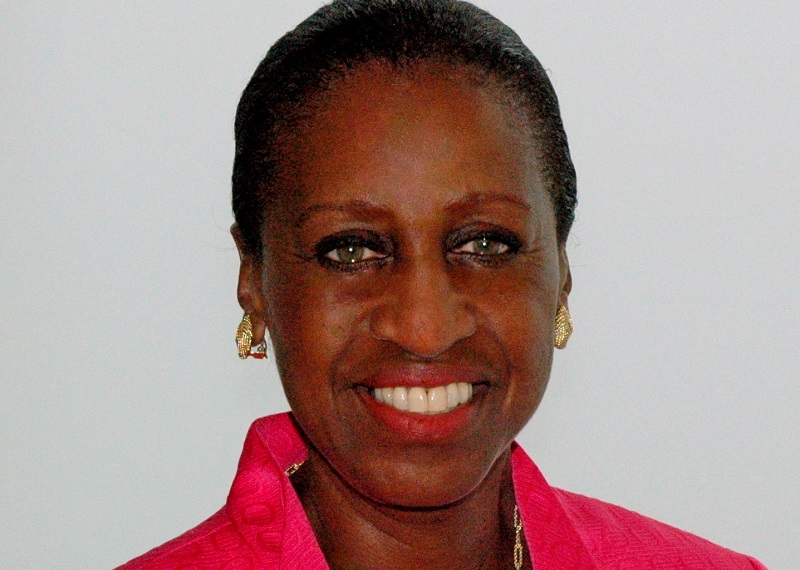By Andre LaFontant
Boston, MA — Act, Learn, Build: A mantra coined by Len Schlesinger, former president of Babson College in Wellesley, Massachusetts, to spur ideation and innovation in our ever-changing social and economic landscape. Donna Bonaparte, Vice President of Human Resources/Chief Human Resources Officer at Babson College, fully embraces this process.
As an advocate of Entrepreneurial Thought and Action®, Donna Bonaparte knows the value of having an entrepreneurial mindset outside the boardroom. Since 2011, Bonaparte has aided in positioning determined, passionate individuals and reframing their mindsets and methodologies, in forwarding their careers with purpose. It was a great pleasure to speak with Ms. Bonaparte about her role at Babson College, as well as about organizational culture, the entrepreneurial spirit, and the importance of diversity, inclusion, and equity in business, education, and beyond.
Color Magazine: What do you think has been your biggest impact in your role at Babson College?
Donna Bonaparte: For over twenty consistent years, U.S. News & World Report has named Babson College the number one educator of entrepreneurship in the world. When I came here, I recognized that I needed to continue to support that, with employees, systems, and processes that correspond with the principles of entrepreneurship.
As you think about entrepreneurship, you recognize that it’s not just about starting a business; that’s just one opportunity or possibility. It’s about developing the mindset of approaching your work or solving a problem entrepreneurially. That is one of the key factors or functions—not just for me—but for the entire HR team, helping to create a climate and culture that support individuals’ functioning in an entrepreneurial way. Over the past seven years, I have informed and empowered individuals to apply this methodology to their careers.
CM: Can you speak to the culture behind Babson’s brand of entrepreneurial spirit?
DB: I believe that Babson welcomes individuals who are positioned to embrace change, comfortable with a certain amount of calculated risk, and able to pivot when opportunities manifest, in ways that are positive, or not, and move on. We seek and select individuals for this community who have those same attributes; they are the individuals who thrive in this environment.
CM: What does that process look like on a person-to-person level?
DB: It’s very behavioral-based. We ask for specific examples of moments when candidates were faced with certain [challenges]; we know that an entrepreneurial mindset would act in [a certain] way.
For instance, “Talk about a time when you had to address a problem and the results did not come out the way you anticipated. What resources did you use? What resources were you willing to give up?” Questions like this allow us to assess how people think and act.
CM: Definitely! What do you think the state of women in entrepreneurship is right now? What type of initiatives has Babson College fostered to promote further representation in this space?
DB: We are very focused on gender equity and propelling women entrepreneurs. The college created the Center for Women’s Entrepreneurial Leadership (CWEL), designed to dramatically increase the impact of female leaders in every sector, enlighten the global community about the value of women’s entrepreneurial leadership, and empower women and men to transform themselves, nations, and generations—while advancing equity, prosperity, and progress for all. The Women Innovating Now (WIN) Lab program within CWEL (with Boston and Miami locations) aims to increase the impact of women leaders in every sector.
CM: Given our current social and political moment, what does it mean to you to be a professional of color in the C-suite?
DB: I see that I have a responsibility to inform others about the power of diversity. I feel a responsibility to create inclusive environments that are respectful and allow members to perform at their highest level. I don’t know if that stems from my color, or if it is because I have a commitment to the value of creating open, equitable environments. These are core leadership qualities.
CM: Can you speak more about the qualities that distinguish effective leaders from the rest of the crowd?
DB: I believe that the most effective leaders are able to define and articulate a vision— hopefully, a bold, transformative vision. The ultimate leader must be someone who can get individuals excited to embrace that vision and, therefore, is willing to execute for a greater good.
CM: If you could drop some bread crumbs for your younger self to follow, what morsels of information would you leave?
DB: As I reflect back, I wouldn’t do anything differently. I am the culmination of immense variety and diversity within multiple sectors and environments, which has made me the professional I am today. Although, I do tell young professionals to identify their actual talents and strengths, to use them to develop skills, and make sure that the work they are doing stirs passion within themselves. That’s how you create a fulfilling career. Not everyone can do that in a professional way. It’s important to find other aspects of your life to tap into those talents. The worst thing you can do is forgo acknowledging those innate talents and not leverage them in your life. In a fulfilling life, you have passion for your work, because you’re doing the things you were meant to do. For me, I have had the blessing to be able to have lived that in my career.



